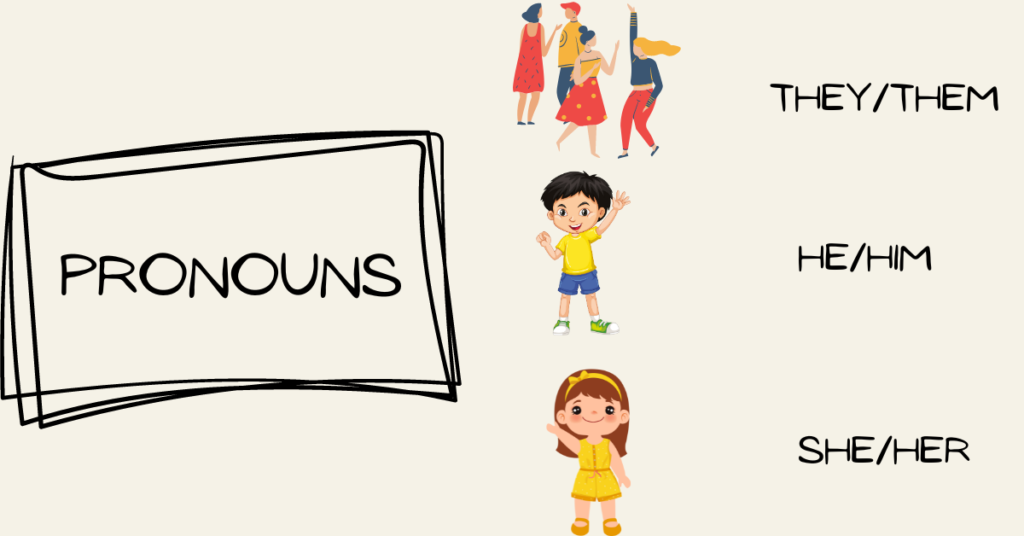
Pronouns are words used in place of nouns to avoid repetition. They help make sentences less repetitive and more concise.
Example: They are my friends.
Explanation: In this sentence, “they” is a pronoun. It is used to refer to a group of people without mentioning their specific names. The pronoun “they” replaces the noun “my friends.
Pronouns can occur in various forms and can be categorized into different types:
- Personal Pronouns: Personal pronouns refer to specific people or things and change based on person, number, and gender.
Examples:
- I
- I am going to the store.
- You
- She loves to read books.
- He
- They are coming to the party.
- She
- Come up with your own sentence.
- It
- Come up with your own sentence.
- We
- Come up with your own sentence.
- They
- Come up with your own sentence.
- Demonstrative Pronouns: Demonstrative pronouns point to specific people, things, or ideas.
Examples:
- This
- This is my car.
- That
- That is a beautiful flower.
- These
- These belong to you.
- Those
- Come up with your own sentence.
- Possessive Pronouns: Possessive pronouns show ownership or possession.
Examples:
- Mine
- The book is mine.
- Yours
- Is this umbrella yours?
- His
- The coat is his.
- Hers
- The house is ours.
- Ours
- Come up with your own sentence.
- Theirs
- Come up with your own sentence.
- Reflexive Pronouns: Reflexive pronouns refer back to the subject of the sentence and emphasize that the action reflects back on the subject.
Examples:
- Myself
- I made the cake myself.
- Yourself
- She bought herself a gift.
- Himself
- He hurt himself while playing.
- Herself
- We decorated the room ourselves.
- Itself
- Come up with your own sentence.
- Ourselves
- Come up with your own sentence.
- Themselves
- Come up with your own sentence.
- Relative Pronouns: Relative pronouns introduce relative clauses and connect them to the noun or pronoun they modify.
Examples:
- Who
- The person who called is my friend.”
- Whom
- The book that I’m reading is interesting.
- Whose
- The house whose roof is red is mine.
- Which
- Come up with your own sentence.
- That
- Come up with your own sentence.
- Interrogative Pronouns: Interrogative pronouns are used to ask questions about people or things.
Examples:
- Who
- Who is coming to the party?
- Whom
- Whom did you invite for dinner?
- Whose
- Whose bag is this?
- Which
- Which color do you prefer?
- What
- Come up with your own sentence.
- Indefinite Pronouns: Indefinite pronouns refer to nonspecific people or things.
Examples:
- Someone
- Someone left their jacket here.
- Everyone
- Everyone enjoyed the concert.
- Something
- Is there anything I can do to help?
- Everything
- Everything will be fine.”
- Anything
- Come up with your own sentence.
- Anyone
- Come up with your own sentence.
Pronouns help us refer to people, things, or ideas without repeating the same nouns over and over. They make our sentences more efficient and concise.